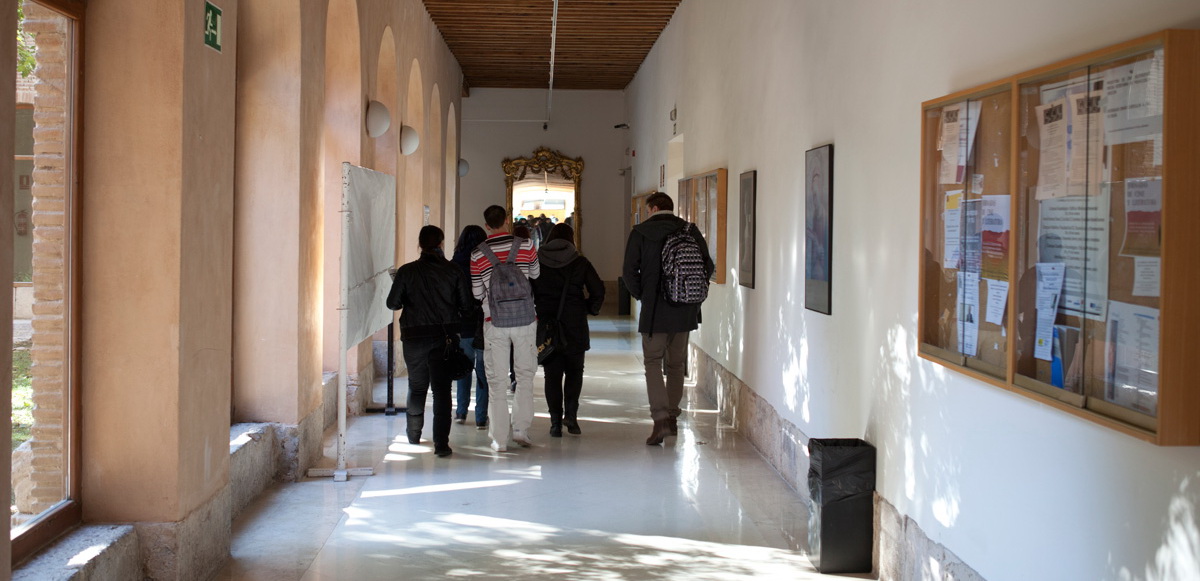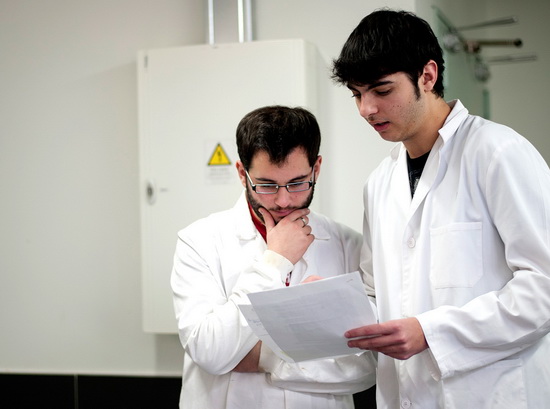
Objectives
The Degree in Electronic Communications Engineering aims to train professionals in communication technologies, electronic circuits and systems design, microprocessors and microcontrollers, electronic instrumentation, computer science and power electronics, as applied to the field of electronic communications and systems.
Students should show an ability for project leadership and be able to identify problems, and engage in risk assessment, providing suitable solutions, expanding their learning, and adapt to changes in order to operate in a rapidly evolving environment.
They should be capable of integrating the fundamental disciplines of electronic communications in order to apply them in research and professional activities in a multidisciplinary and multilingual context.
The objective of this course is to provide students with scientific and technical knowledge, as well as practical abilities in the various areas of industrial engineering, either to exploit present and future potential in the various disciplines or to engage in research and development in industrial electronic engineering.
These professionals should master the following technologies applied to automation and industrial processes control:
robotics, automation, microprocessors and microcontrollers, electronic instrumentation, industrial computing and power electronics.
They should be able to manage the functions and processes mentioned above, and be able to adapt to new methods and situations, make decisions, work in a multilingual and multidisciplinary context, and convey their knowledge and abilities. They should also be aware of the specific regulations affecting their field of work.
Competences
Structure and credits
| TYPE OF SUBJECT | ECTS |
|---|---|
| Basic Training (B) | 84 |
| Obligatory (Ob) | 171 |
| Optional (Opt) | 36 |
| Final Project (Ob) | 24 |
| TOTAL CREDITS | 315 |
Student profile
Students should have a good background in mathematics and an understanding of disciplines related to science and technology. A good level of English proficiency is advisable.
They should have some ability for abstraction, attention, perception, reasoning, organization and method, analysis and synthesis, and in interest in technology, imagination and a practical sense.
Professional opportunities and officially regulated professions
The Degree in Electronic Communication Engineering leads to the Master's Degree in Telecommunications Engineering, which enables its holders to work professionally as Telecommunications Engineers.
Among other areas, graduates could work specifically in the fields of:
- Telecommunications.
- Analogue electronics.
- Digital electronics.
- Digital electronic systems.
- Electronic instruments.
- Electronic control.
- Electronic design and technology.
- Power electronics.
- Ccommunication electronics.
- Photonic technology.
- Communications and the Internet.
- Medicine, homes and leisure.
- Intelligent electrical networks.
- Eenergy efficiency and renewable energy.
- Ttransport.
- Robotics
Holders of this degree complete their studies with the Master's Degree in Industrial Engineering, which qualifies its holders to work professionally as Industrial Engineers in the following fields:
- Industrial automation
- Hardware and software companies
- Energy
- Electricity
- Power electronics
- High technology
- Safety
- Robotics and domotics.
First academic year taught
Curso 2021/22 PRIMERO
Curso 2022/23 PRIMERO Y SEGUNDO
Curso 2023/24 PRIMERO, SEGUNDO Y TERCERO
Curso 2024/25 PRIMERO, SEGUNDO, TERCERO Y CUARTO
Curso 2025/26 PRIMERO, SEGUNDO, TERCERO, CUARTO Y QUINTO
Information leaflet
More information
- Teaching centre: Polytechnic High School
- Number of places available: 25
- Type of teaching: CLASSROOM
- Language of instruction: SPANISH
- First academic year taught: 2021-22
Observaciones
Distinguido con el sello de excelencia EUR-ACE® que concede la agencia ENAEE, tras la evaluación del título con arreglo de una serie de estándares definidos, de acuerdo con los principios de calidad, relevancia, transparencia, reconocimiento y movilidad contemplados en el Espacio Europeo de Educación Superior.
Subjects, timetables and examinations
Study plan /of adaptation to the degree / Recognition of credits
External practicums
Final Project
International Programmes and Exchanges
Movilidad nacional
Registration
Antes de realizar la matrícula es imprescindible leer la información que figura en el apartado de planificación de la enseñanza y toda la información detallada siguiente:
Regístrate para obtener usuario y contraseña
Protección de datos personales
ACCESO AL PROGRAMA DE AUTOMATRÍCULA





